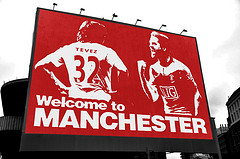Solved exercises
Remember that topic 3 is about conditional sentences type 3 and some of the differences between American and British English pronunciation. Here you have some exercises to help you understand these grammar points.
1) It is impossible that the condition will be fulfilled because it refers to the past.
2) It is possible and but very unlikely that the condition will be fulfilled.
3) It is possible and also very likely that the condition will be fulfilled.
Complete the phrases below by writing the correct number in each space.
|
1 |
If you had studied harder |
|
you wouldn't have had an accident |
|
2 |
The children wouldn't have got wet |
|
if he had arrived at the airport on time |
|
3 |
If you hadn't driven so fast |
|
if they had played better against Lyon |
|
4 |
Real Madrid would have qualified |
|
if they hadn't played with water |
|
5 |
Paco would have caught the flight |
|
if you'd asked. |
|
6 |
I'd have helped you |
1 |
you would have passed the exam |
1) Manchester United __________ ( be) League champions if they __________ ( win) their last game.
 |
|
By pixeljunkie. Creative Commons.
|
2) If the weather __________ ( be) nicer, we __________ ( play) football in the park.
3) My friends __________ ( see) Madonna if they __________ ( wait) for another 10 minutes.
4) If he __________ ( ask) me, I __________ ( explain) it to him straightaway.
5) The students _________ ( arrive) on time if they __________ ( take) the bus to school.
2) We __________ (not get lost) in the city if you __________ ( take) my opinions into account.
3) If it __________ (not rain) so hard, the children __________ ( play) outdoors.
4) If Paco __________ (not be) so tired, he __________ ( go) for a walk in the city.
5) Your sister __________ ( come) with us if she __________ (not finish) her homework so late.
1) The letter r is always pronounced in American English.
2) The letter s is never pronounced.
3) The letter t is mostly pronounced like d in American English when it is between two vowels.
4) You have to speak quickly to sound American.
5) The letter o is sometimes pronounced /ae/ in American English.